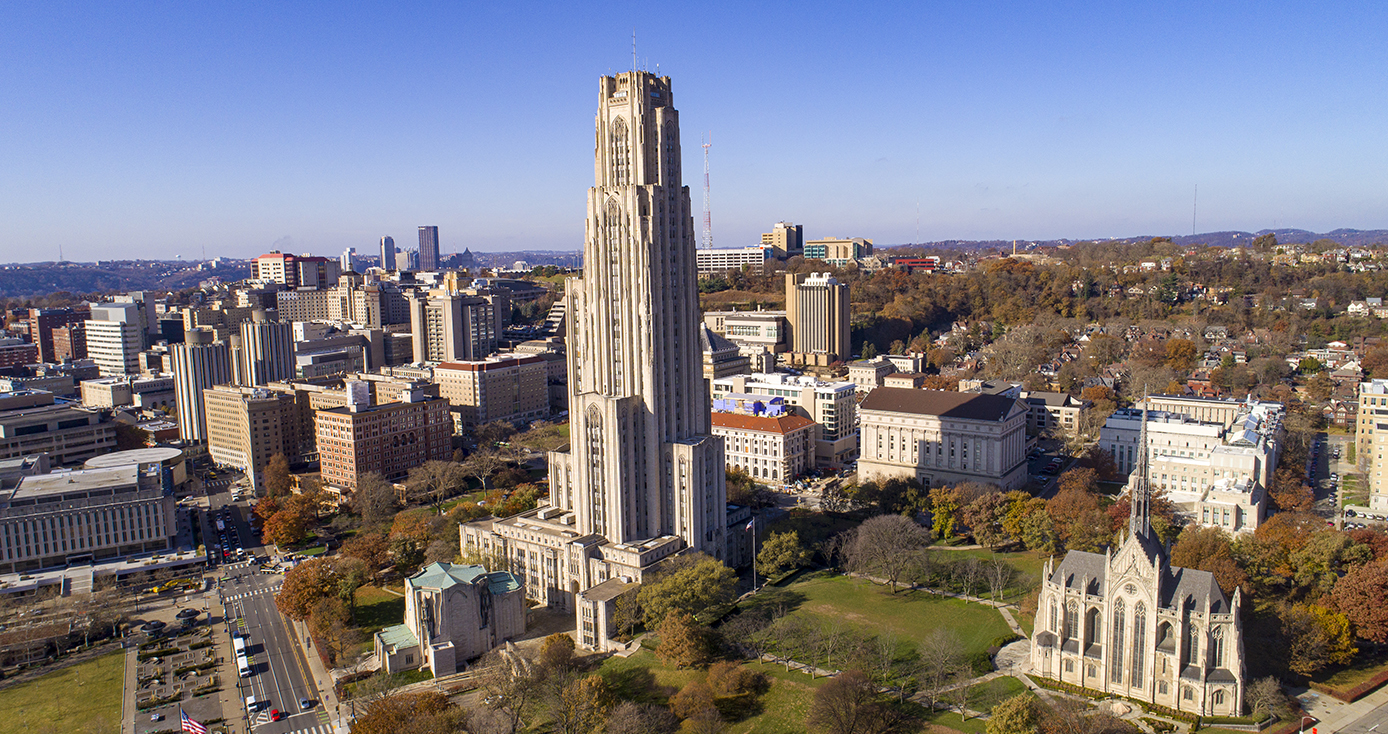
Subscribe to Pittwire Today
Get the most interesting and important stories from the University of Pittsburgh.Sustainability Efforts Earn Administrator Global Honor
The University’s culture of sustainability is fueled not only by individual efforts and grassroots support, but also through institution-wide commitments and the guidance of leaders who are champions for the cause.
That commitment has been recognized with a prestigious honor: Associate Vice Chancellor for Facilities Management Scott Bernotas has been named to Environment + Energy Leader’s 2020 E+E 100.
The publication’s annual list recognizes the top 100 professionals worldwide who are advancing best practices and making a difference in environment and energy management.
Bernotas oversees the utilities infrastructure and more than 130 buildings on the University of Pittsburgh’s 145-acre main campus, in support of Pitt’s community of more than 42,000 faculty, staff and students.
The E+E 100 aims to inspire by highlighting leaders and innovators who are taking action to not only improve their organizations’ bottom lines but also to advance progress toward a more sustainable world for future generations.
Under Bernotas’ leadership and support, Pitt has emerged as a higher education model for its sustainability and energy achievements.
Since his arrival at Pitt in 2015, Bernotas has championed the transformation of Pitt’s historic facilities into more environmentally efficient spaces.
His team’s results have made a big impact on campus.
Sustainability in many forms
The Pittsburgh campus has attained the lowest energy use per square foot since data tracking began in 2008. The campus has realized a 22% reduction in campus energy use since 2015, which moves the University closer to its Pittsburgh 2030 District goal to reduce energy use per square foot 50% by 2030.
Pitt also remains on track to meet its own commitment to achieving carbon neutrality by 2037 and the 2018 Pitt Sustainability Plan milestones of reducing greenhouse gas emissions 50% by 2030 (from a 2008 baseline), while producing or procuring at least 50% of its electricity from renewable sources.
Bernotas has spearheaded a suite of innovative energy-reduction initiatives including a LED lighting upgrade program that has saved more than $200,000 annually across 12 buildings, and fault detection and diagnostics analytics system assessments that have resulted in energy savings of more than $112,000 annually.
His team also has implemented solutions to cut water consumption toward Pitt’s goal to reduce water use per square foot 50% by 2030. Water use on campus has decreased 13.9% since 2015.
In fiscal year 2020, Bernotas led his team in analyzing actual versus expected water usage, identifying nine water leaks whose repair saved Pitt over $173,000 monthly, in addition to fixing steam leaks, saving $14,000 monthly.
And even more savings are in the pipeline—a bathroom renovation initiative underway in Litchfield Towers is projected to save over $170,000 annually through the installation of new water-efficient fixtures.
Sustainability is a top consideration in all University building projects. To date,14 are LEED-certified, with nine more in development. And sustainability is built into the plan for construction and renovation projects across campus, including renovations at the Graduate School of Public Health, Benedum Hall, Clapp Hall and Salk Halls—as well innovative grounds renovations that feature sustainable landscaping, green spaces and walking and biking pathways, including the Bigelow Block Transformation and the upper hillside infrastructure improvement project along University Drive.
Bernotas partnered on bold solutions to expand the University’s renewable energy portfolio, increasing Pitt’s renewables percentage to over 23% in 2019—more than five times its 2014 level. New hydroelectric and solar power purchase agreements have put Pitt on track to reach its goal of producing or procuring 50% of its electricity from renewable sources by 2030. Through these two contributions alone, renewables will make up at least 36% of Pittsburgh’s campus electricity mix by 2024.
Meanwhile, this commitment to clean electric power has qualified the University as a U.S. EPA Green Power Partner. Pitt has ranked among the EPA Green Power Partners’ top 30 college and university green power users in both 2019 and 2020.
The University’s commitment doesn’t end at the edge of campus. Pitt recently was awarded a Second Nature Climate Solutions Acceleration Fund grant to help support energy modeling for Pittsburgh’s Oakland neighborhood through a collaborative Oakland Energy Master Plan. Pitt more recently reaffirmed its own commitment to carbon reduction and voiced its support for a renewed national commitment as one of more than 1,500 signatories to the Dec. 12 “We Are Still In” statement on climate action.
“Pitt defines sustainability as balancing equity, environment and economics so current and future generations can thrive,” said Aurora Sharrard, the University’s director of sustainability. “Scott has enthusiastically embraced this commitment to the University’s future. Facilities Management is key to our sustainability gains. His vision and leadership have advanced an array of initiatives that are achieving results today while making the University increasingly more sustainable.”
Also among the leaders named to the 2020 E+E 100 is Marcus Krembs, director of sustainability at Enel North America. Enel, a multinational power company based in Rome, is among the founding corporate partners of Pitt’s Center for Sustainable Business.



